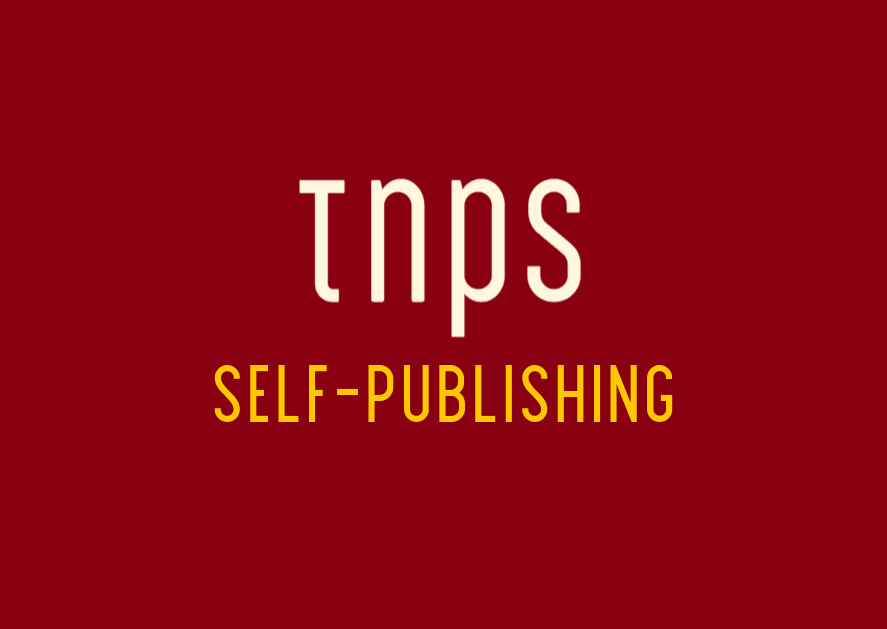When Digital Book World announced Data Guy would be delivering the closing keynote speech, during which time he would dazzle us with yet more publishing industry numbers known to nobody else, and incidentally would reveal his true identity and answer his critics, there was a muted response.
Data Guy’s true identity is neither here nor there, but with remarkable timing, as I prepare this post to go live Nate Hoffelder is running a post over at The Digital Reader with the identity of Data Guy. Head over to Nate’s blog if you want to put a name to the nonsense numbers.
Nonsense numbers? Strong words, but how else do you describe numbers that, as presented by Data Guy himself, appear to assert the US ebook market doubled in size between January and September 2018?
Data Guy had already given us a flavour of the new BookStat numbers in January 2018 on the Author Earnings blog, and again in May when he offered us some numbers – or rather, percentages – from his presentation to the SWFA Nebula Conference.
The January 2018 numbers were in sharp contrast to the numbers we’d previously been provided by Author Earnings, and confidence was further shaken when Data Guy went out of his way to tell us not to compare the old and new numbers.
But here’s the thing. Even where we compare the new (January 2018) and new (October 2018) numbers they still don’t add up.
The latest numbers being displayed – possibly only in part – on the Author Earnings site right now make entertaining reading, once we get through the mile of self-promo. And if we pretend the BookStat numbers we were told about in January do not exist they could be considered eye-opening. But given Data Guy did give us those numbers in January, they cannot be ignored.
Data Guy opens his DBW Keynote,
The industry data we’ve seen so far on digital books paints a highly misleading picture of the market.
According to Data Guy the 162 million US ebooks sales reported by “the legacy industry” is “diametrically wrong” and the true figure for US ebook sales is 538 million.

Now of course we all understand and accept that the “legacy industry figures” do not capture A-Pub and self-published sales and also miss many smaller publishers, and that therefore the true level of ebook sales is higher than the 162 million.
But 376 million higher? Are we really to believe the untracked ebook sales coming from A-Pub, self-publishers and the smaller publishers not counted by PubTrack are 2.3 times more than what are tracked by PubTrack?
But it’s there in black and white. Well, red and green. And not just the once.

Okay, let’s leave aside the small fact that Data Guy is here showing thirteen months, not twelve. As we see next, Data Guy further abandons statistics etiquette by giving us eighteen month figures for no good reason.

Well, I say no good reason, but actually eighteen months ago is when BookStat began collecting the numbers, as opposed to Author Earnings.
But why not use twelve months? After all, Data Guy has just shown us he has twelve months of Nielsen BookScan/PubTrack data.
But using eighteen months of data helps cloud the picture a little. Always useful when the numbers being offered don’t quite add up.
So let’s take a look at those numbers.
The US ebook market according to Data Guy’s BookStat comprised, in the eighteen month period identified, 781 million unit sales worth a USD value of $4.021 billion.
And here’s where it starts to get awkward.
Back in 2017 Data Guy, then as Author Earnings, gave us these figures for the twelve months of 2016.
Total ebook units sold – 487 million.

Total value for ebooks sold in US in 2016: $3.177 billion.

Staggering numbers, if true. But we only have Data Guy’s word that they are.
And here’s the thing.
Data Guy himself later decided those numbers were incorrect. Or rather, that they didn’t fit in with his new BookStat narrative. So he changed the 2016 numbers to fit.
On May 31 this year Data Guy, slipped into comments on the January 2018 BookStat report for Author Earnings, randomly declared that the 2016 unit numbers were 525 million, not the 487 million we were clearly and unequivocally told in February 2017. 38 million unit sales were added to the Author Earnings numbers on a whim.
And to put 38 million in context, that’s double what Data Guy attributed to Nook for 2016 (19 million) and almost as much as Apple’s supposed 2016 sales (44 million).
Well, that’s the benefit of being the only person producing these numbers. They are whatever you say they are.
Here’s Data Guy’s actual wording in the comments thread. Compare with the images above, as provided by the self-same Data Guy.
US ebook sales totaled roughly 545 million units for the last 12 months, up from the 510 million & 525 million in 2015 & 2016. Dollar sales OTOH are down about 7%, to just over $3.04 billion, reflecting a continued shift away from high-priced Big Five ebooks and toward lower-priced indie and Amazon-imprint published ebooks.
No explanation offered, and of course there is none to offer, given the new BookStat data did not start collecting the numbers until April 2017.
What it means of course is that Data Guy’s new BookStat count came in at 545 million unit sales, but then we would be asked to believe that sales had increased by 58 million rather than just 20 million.
But that would stretch credulity too far, so why not rewrite the historical data instead?
If this were a one-off inconsistency we might be inclined to let sleeping dogs lie, but even with the limited comparative data we are offered in the Digital Book World slide-show the mismatched numbers come thick and fast.
But first, let’s turn to the inaugural BookStat/Author Earnings Report of January 2018, where Data Guy introduced his new paid-for service (turnover of $10 million required to play).
If your company’s annual revenues are $10 million or more, and you think Bookstat’s sales data dashboard might be a good match for your business needs, give us a shout. We’d be happy to set up a live demo or explore different subscription options.
In the January 2018 report Data Guy tells us clearly that ebook sales, unlike print, remain steady through the year.
Overall US ebook dollars (green) and audiobook dollars (yellow) were pretty flat from month to month: December doesn’t really look all that different than May. Digital book-buyers seem on the whole to be very steady consumers, showing little seasonality in their overall purchasing behavior.
And to ram home that point Data Guy provides us with another pretty picture showing quite clearly (blue) that ebook sales, according to BookStat, remain steady throughout the year.

Data Guy usually avoids linear charts like this as they give away too much detail, but if we zero in on this image we can see ebook revenue to be at just under $150 million a month rising to 150 million in July, just topping 150 million in August and September, then dropping back to 150 million to end the year.
Safe to say $150 million average per month. Certainly no sign of any significant trend upwards. Taking an average of $150 million per month over the nine months gives us total revenue from ebooks of ($150m x 9) $1.35 billion, and that accords neatly with Data Guy’s statement in the opening remarks on the January 2018 BookStat summary for Author Earnings that (his emphasis),
During the last three quarters of 2017, we recorded $1.3 billion in individually tracked ebook sales, $490 million in individually tracked audiobook sales, and $3.1 billion in individually tracked online hardcover and paperback purchases.
Here it is again in a pretty picture, just in case there’s any confusion.

Of course that immediately raises questions.
Data Guy has just told us, and shown us, there is very little fluctuation month to month, so by Data Guy’s own logic it is reasonable to assume that for a full year we can look at all twelve months at approx $150 million, equating to an annual ebook revenue rate of ($150 million x 12) $1.8 billion.
A far cry from the $3.2 billion we were told had come in in 2016.
And bizarrely, despite the numbers laid out in the January 2018 report showing $1.3 billion, Data Guy is, four months later in the comments thread of the same report, asserting the dollar value for US ebook sales in last twelve months (that’s the nine months shown plus three months of 2018) to be
down about 7%, to just over $3.04 billion.
Okay, so having told us in January BookStat was tracking $1.3 billion sales of ebooks in the last nine months of 2017, Data Guy is now in May telling us the total for the twelve months is $3.04 billion.
Remember these are Data Guy’s own contradictory numbers as spelled out by Data Guy in the Author Earnings January 2018 post and in comments by Data Guy made in May on the exact same post.
Bear those numbers in mind as we fast forward to Digital Book World 2018, where Data Guy was due to give a keynote speech in which he would supposedly reveal his true identity, answer his critics and dazzle us with more numbers that he and he alone can magic up.
Now I wasn’t at DBW 2018 and Data Guy’s identity is neither here nor there (but as above, head over to The Digital Reader if you want to know), but I did scour the net for any reports on this keynote speech. All I could come up with is the slideshow Data Guy himself stuck on the Author Earnings site.
Data Guy shares some numbers with us. Not a lot, but enough to show us some glaring inconsistencies.
Consider this:
The US ebook market for the eighteen months from April 2017 to September 2018 is worth $4.02 billion, says Data Guy.
Unit ebook sales for that same period amounted to 781 million.
But hold on. Isn’t that the exact same April-December 2017 we have already been told the numbers for (January 2018 report), along with the first nine months of 2018?
Well yes, that’s EXACTLY what it is.
So here’s reminder of Data Guy’s Big Picture for those last nine months of 2017.

And here’s the Big Picture for those same nine months plus the first nine months of 2018.

Now let’s spell it out in simple arithmetic.
If the total ebooks sales for April 2017 through September 2018 were worth $4,021,116,522.19 (as Data Guy clearly tells us), but the total ebooks sales for April 2017 through December 2017 were worth $1,339,744,763.23 (as Data Guy clearly tells us) then the ebook sales for January-September 2019 must, by deducting the second value from the first, be worth $2,681,371,758.96.
In other words, ebook sales in January-September 2019 were DOUBLE the value of April-December 2017.
How do unit sales fare? Again, Data Guy has given us the numbers for April-December 2017 and the numbers for April 2017 through September 2018.
Through April-December 2017, says Data Guy, 266,287,589 ebook units were sold.
Through April 2017 – September 2018, says Data Guy, 781,093,793 ebooks were sold.
Which means 514,806,204 ebooks were sold in the first nine months of 2018 compared to the 266,287,589 in the previous nine months.
That’s one huge jump in ebook sales. 93% since you ask.
Yet no-one seems to have noticed. Least of all Data Guy, who nowhere remarks on this incredible performance.
Likewise for audiobooks.
For April 2017 through September 2018 Data Guy tells us audiobooks sold 144,610,353 units for $2,621,670,144.66.
But… and this is a big but… Data Guy had previously told us that for April 2017 through December 17 only 27,438,079 units were sold for $495,454,822.46.
Just for clarity that’s $2.6 billion against less than $0.5 billion. So somehow audiobooks in the USA raked in a full $2 billion more in the first nine months of 2018 compared to the last nine months of 2017.
Unit sales? Equally nonsensical numbers.
According to Data Guy’s own clearly stated numbers, in the last nine months of 2017 exactly 27,438,079 audiobooks were sold.
According to Data Guy’s own clearly stated numbers, by subtracting the last nine months from the 18 month value Data Guy gave us, in the first nine months of 2018 audiobook unit sales in the US totalled 117,172,274.
These are Data Guy’s own numbers, remember.
Much of the BookStat DBW slideshow offers us numbers against which we have no previous data for comparison, but there is one last opportunity to explore the nonsensical discrepancy between what Data Guy was telling us in January 2018 and what he tells us in October 2018.
That is, Mystery, Thrillers and Suspense.
Here’s what Data Guy told us about the genre in January 2018, referencing the nine months April-December 2017.
Unit ebook sales of 25,425,137 valued at $187,673,043.62.
Here’s the graphic so we can be sure I’ve not typoed Data Guy’s numbers.

Leave aside here the ludicrous notion that there is another genre titled “Literature and Fiction” that outsells both mystery and romance. Let’s just stick with the numbers Data Guy laid out for us for the Mystery, Thriller and Suspense genre.
Now compare the same genre’s unit sales and dollar value for the eighteen months from April 2017 through to September 2018.
That will be 215,519,384 units worth $1,101,587,354.72.

And yes, by Data Guy’s own figures, deducting the stated April-December figures from the 18 month value, we see that, nonsensically, Mystery Thrillers & Suspense supposedly jumped from 35 million unit sales in the last nine months of 2017 to 180 million in the first nine months of 2018. Revenue, on the same basis, jumped from $187 million to $913 million.
Yet in the same breath Data Guy is telling us Mystery, Thriller & Suspense grew at just 4.8%.

Once again the numbers Data Guy is telling us in October 2018 bear no relation to the numbers we were told just nine months earlier in January 2018.
Clearly the numbers we were told in October 2018 and January 2018 cannot both be correct. But which, if any, is accurate?
Likewise when we are told in May 2018 the unit volume of the 2016 US ebook market is 525 million and In February 2017 that it is 487 million it is abundantly clear both numbers cannot be correct.
The big question is, is either correct? And come to that, is either even remotely close to reality?
We simply cannot know because Data Guy’s numbers are whatever Data Guy decides they are, and if they happen to be miles apart from what he previously told us, even just nine months ago, well, let’s hope no-one notices.
We saw that clearly in January when Data Guy somehow managed to count the world’s best-known author, JK Rowling twice in the list of top-selling authors by dollar revenue.
Don’t take my word for it:

Once again while we can be sure both numbers cannot be correct we have no idea if one may be or if none are.
And that sadly is a problem that pervades the Author Earnings and BookStat reports, making them endlessly entertaining but of questionable value to the industry.





